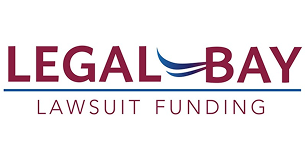What Are Litigation Loans?
When someone is injured in an accident and files a lawsuit, they often face a long legal process before reaching a settlement or winning a trial. In the meantime, everyday bills like rent, groceries, and medical expenses continue to pile up, especially if the injury prevents them from working. This is where litigation loans, also known as pre-settlement funding, come into play.
Litigation loans are a type of financial assistance available to plaintiffs involved in personal injury or civil lawsuits. While they’re often called “loans,” they work more like non-recourse cash advances, meaning repayment is only required if the plaintiff wins or settles the case.
Let’s break down how litigation loans work, when they’re used, their pros and cons, and the most important things to consider before applying for one.
How Do Litigation Loans Work?
Litigation loans are typically offered by legal funding companies to individuals who have filed a lawsuit and are awaiting compensation. Here’s a basic overview of how the process works:
- Application: The plaintiff, or their attorney, contacts a legal funding company and provides basic case information.
- Review: The funding company reviews the case details, including liability, damages, expected recovery, and attorney involvement.
- Approval: If the case looks strong, the company offers a cash advance, often between $500 and $50,000 or more.
- Repayment: If the plaintiff wins or settles the case, the company is repaid from the settlement amount, including fees and interest. If they lose the case, they owe nothing.
Key Stat:
Funding amounts typically range from $500 to over $100,000, depending on the case type and strength.
Because litigation loans are non-recourse, they carry no personal liability. That means if you don’t win your case, you don’t have to repay the money.
Why Do People Use Litigation Loans?
Most plaintiffs who apply for litigation loans are dealing with serious financial hardship. A severe injury may prevent them from working, and lawsuits can drag on for months or even years.
Supporting Stats:
- A 2022 survey by Legal Funding Central found that 72% of applicants used their funding to pay for rent, utilities, or food.
These loans can be a financial lifeline, helping people cover essential living expenses, medical bills, or transportation while they wait for their legal case to resolve.









